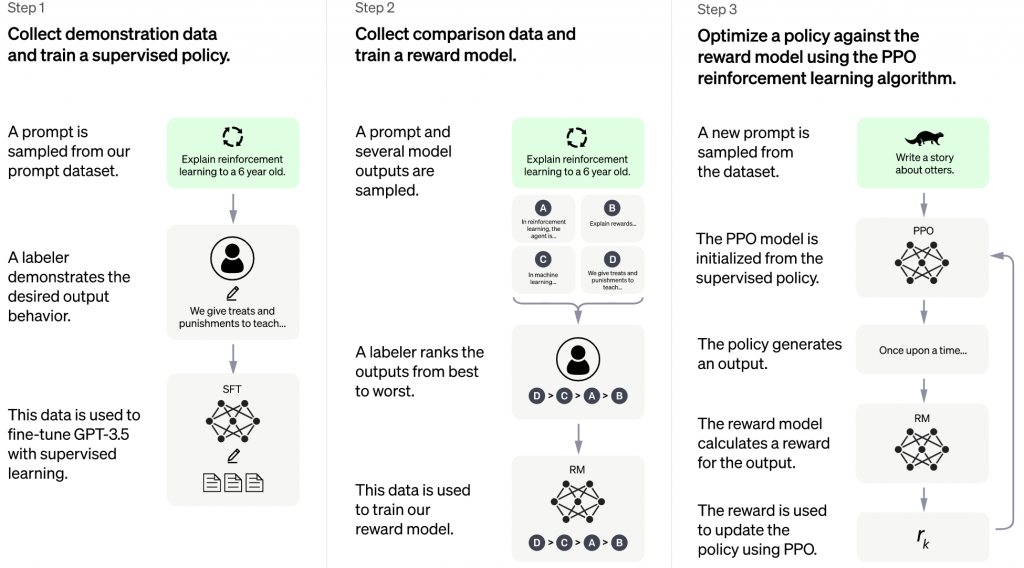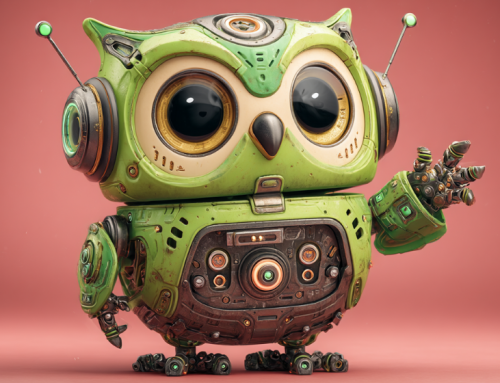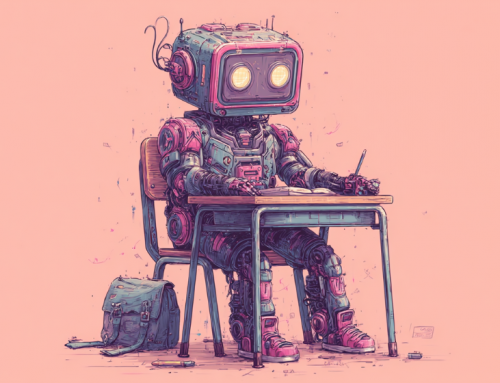
From GPTZero: ‘We randomly selected a model-written message, sampled several alternative completions, and had AI trainers rank them. Using these reward models, we can fine-tune the model using Proximal Policy Optimization. We performed several iterations of this process.’ (Source: GPTZero)
Princeton Student Creates GPTZero to Expose Plagiarism in University Papers
Every writer gets writer’s block occasionally. And with the digital world being as it is these days, it’s possible for blocked writers to seek writing help from chatbots. But it is also a way to commit plagiarism. And as chatbots keep getting more proficient at mimicking humans it is hard for many folks to recognize robotic writing.
A new app can detect whether your essay was written by ChatGPT, as researchers look to combat AI plagiarism. Yes, it has come down to apps checking apps to see if their uses are legitimate according to a story from businessinsider.com, written by Peter Syme.
Edward Tian, a computer science student at Princeton, said on Twitter that he spent the holiday building GPTZero. He shared two videos comparing the app’s analysis of a New Yorker article and a letter written by ChatGPT. It correctly identified that they were respectively written by a human and an AI.
GPTZero scores the text on its “perplexity and burstiness” – referring to how complicated it is and how randomly it is written. Whatever burstiness is supposed to be is not explained in the article.
The app was so popular that it crashed “due to unexpectedly high web traffic,” and currently displays a beta-signup page. GPTZero is still available to use on Tian’s Streamlit page after the website hosts stepped in to increase its capacity, but it had crashed as of yesterday.
Tian, a former data journalist with the BBC, said he was motivated to build GPTZero after seeing increased instances of AI plagiarism.
“Are high school teachers going to want students using ChatGPT to write their history essays? Likely not,” he tweeted.
I’m not sure Tian’s classmates will vote for him for Student Body President, but he has a point to his GPTZero. This goes beyond students trying to get around their teachers with phony writing.
This ChatGPT has gotten into the workplace with resumes being faked. Insider’s Beatrice Nolan also tested ChatGPT to write cover letters for job applications, with one hiring manager saying she’d have got an interview, though another said the letter lacked personality.
We at her at Seeflection.com hope our readers are creative enough and honest enough not to plagiarize someone on something as important as a school paper or application for work. Now that newspapers like The New York Times and people over at Google have issued a “code red” alert over the AI’s popularity it is likely your deception will be exposed.
here's a demo with @nandoodles's Linkedin post that used ChatGPT to successfully respond to Danish programmer David Hansson's opinions pic.twitter.com/5szgLIQdeN
— Edward Tian (@edward_the6) January 3, 2023
We the public must be aware that new and better chatbots are being produced almost daily. It may be easier to complete a tough project or assignment by allowing AI to write it, but that’s not the ethical way. For every chatbot that will help you write, there is another application that will reveal your lack of ethics and writing ability. Perhaps it’s just better to do your own work and let the bots verify your original content.
I can’t help but wonder which app Congressman-Elect George Santos used to write his fake resume.
read more at businessinsider.com







Leave A Comment